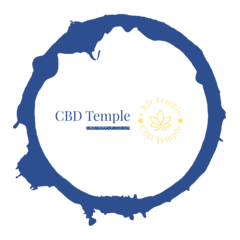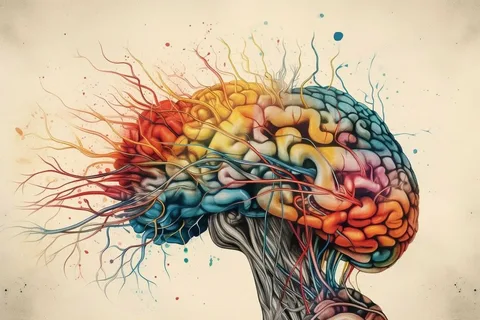Cognitive flexibility refers to the brain’s ability to adapt to new situations, think creatively, and switch between different tasks or thoughts seamlessly. It plays a crucial role in problem-solving, learning, and everyday decision-making. Nootropics, also known as smart drugs or cognitive enhancers, are substances that can improve various aspects of cognitive function, including memory, creativity, and, importantly, cognitive flexibility. This guide explores the science behind cognitive flexibility, the types of nootropics that can enhance it, and practical tips for integrating these supplements into your routine.
Understanding Cognitive Flexibility
What is Cognitive Flexibility?
Cognitive flexibility is the mental skill that allows individuals to switch between thinking about two different concepts or to think about multiple concepts simultaneously. It is essential for tasks that require adaptive thinking, such as problem-solving, adapting to new information, and changing perspectives.
The Importance of Cognitive Flexibility
Cognitive flexibility is vital for academic success, career development, and overall quality of life. It helps individuals adapt to new learning environments, manage stress, and solve problems more efficiently. In a rapidly changing world, this skill becomes increasingly valuable, allowing people to navigate new challenges and opportunities with ease.
Factors Influencing Cognitive Flexibility
Several factors can impact cognitive flexibility, including age, stress levels, physical health, and underlying neurological conditions. While some decline in cognitive flexibility is a natural part of aging, lifestyle choices and interventions, such as the use of nootropics, can help maintain or even enhance this cognitive ability.
Nootropics and Cognitive Flexibility
What are Nootropics?
Nootropics are a broad category of natural and synthetic substances that can enhance brain function. They can improve memory, focus, creativity, motivation, and other cognitive abilities. Some nootropics are well-researched and widely used, while others are newer and less understood.
How Nootropics Enhance Cognitive Flexibility
Nootropics can enhance cognitive flexibility through various mechanisms, such as increasing neurotransmitter levels, improving blood flow to the brain, and supporting neuroplasticity (the brain’s ability to reorganize itself by forming new neural connections). These effects can lead to better adaptation to new situations, improved problem-solving skills, and greater mental agility.
Key Nootropics for Cognitive Flexibility
1. Racetams
Racetams, such as piracetam and aniracetam, are among the most well-known nootropics. They are believed to enhance cognitive function by increasing acetylcholine levels in the brain, a neurotransmitter crucial for learning and memory. Racetams are often used to improve memory, focus, and cognitive flexibility.
2. Modafinil
Modafinil is a wakefulness-promoting agent often used to treat narcolepsy. It has cognitive-enhancing effects, particularly in improving executive functions like decision-making and cognitive flexibility. Modafinil is thought to work by increasing dopamine levels and other neurotransmitters in the brain.
3. L-Theanine and Caffeine
This combination is popular for enhancing alertness and focus. L-Theanine, an amino acid found in tea, promotes relaxation without drowsiness, while caffeine increases alertness. Together, they can improve cognitive flexibility by enhancing the ability to focus on tasks while remaining calm and adaptive.
4. Bacopa Monnieri
Bacopa Monnieri is an herb traditionally used in Ayurvedic medicine. It has been shown to improve memory and cognitive function, possibly by reducing oxidative stress and supporting neurotransmitter function. Bacopa may also enhance cognitive flexibility by promoting mental clarity and reducing anxiety.
5. Lion’s Mane Mushroom
Lion’s Mane Mushroom is a natural nootropic that supports neurogenesis, the growth of new neurons. It contains compounds called hericenones and erinacines, which are believed to stimulate nerve growth factor (NGF) production. This can lead to improved cognitive flexibility by promoting brain health and plasticity.
6. Rhodiola Rosea
Rhodiola Rosea is an adaptogenic herb known for reducing fatigue and enhancing mental performance. It helps regulate the production of neurotransmitters like dopamine and serotonin, which are crucial for mood regulation and cognitive flexibility. Rhodiola can be particularly useful in managing stress-related cognitive decline.
Integrating Nootropics into Your Routine
Choosing the Right Nootropic
Selecting the right nootropic depends on your individual needs and goals. Factors to consider include the specific cognitive functions you want to enhance, any underlying health conditions, and your tolerance for different substances. It’s essential to research each nootropic and consider consulting a healthcare professional before starting any new supplement.
Dosage and Safety
The optimal dosage for nootropics can vary based on the substance, the individual, and the desired effects. It’s crucial to start with the lowest effective dose and gradually increase it as needed, while monitoring for any side effects. Safety is paramount, so it’s important to be aware of any potential interactions with other medications or conditions.
Combining Nootropics: Stacking
Combining different nootropics, known as stacking, can enhance their effects. For example, combining L-Theanine with caffeine can provide a balanced boost in alertness and relaxation. When stacking, it’s important to understand how each component interacts and to start with low doses to gauge your response.
Monitoring and Adjusting
Keep track of your experiences with different nootropics, including any changes in cognitive function, mood, and overall well-being. Adjust your dosage or combination as needed based on your observations. It’s also helpful to take breaks from nootropics periodically to prevent tolerance and assess their long-term effects.
Lifestyle Considerations
While nootropics can enhance cognitive flexibility, they should be part of a holistic approach to cognitive health. Maintaining a healthy lifestyle, including a balanced diet, regular exercise, adequate sleep, and stress management, is essential for optimizing brain function.
FAQs About Nootropics and Cognitive Flexibility
What is the best nootropic for improving cognitive flexibility?
The best nootropic depends on individual needs and preferences. Racetams, Modafinil, and Lion’s Mane Mushroom are popular choices known to enhance cognitive flexibility.
Can nootropics help with multitasking?
Yes, some nootropics can improve multitasking abilities by enhancing focus, working memory, and executive function, all of which contribute to cognitive flexibility.
Are there any natural nootropics for cognitive flexibility?
Natural nootropics like Bacopa Monnieri, Lion’s Mane Mushroom, and Rhodiola Rosea can support cognitive flexibility through various mechanisms, including neuroprotection and neurotransmitter support.
How long does it take to see effects from nootropics?
The onset of effects can vary depending on the nootropic. Some may provide immediate benefits, while others, like Bacopa Monnieri, may require several weeks of consistent use for noticeable effects.
Are there any risks associated with nootropic use?
While many nootropics are considered safe, they can have side effects, especially if misused or combined improperly. It’s important to research and consult a healthcare professional before starting any nootropic regimen.
Can nootropics replace a healthy lifestyle?
Nootropics should not replace a healthy lifestyle but rather complement it. Diet, exercise, sleep, and stress management are foundational to cognitive health.
Is it necessary to cycle nootropics?
Cycling nootropics, or taking breaks, can help prevent tolerance and allow the body to reset. This practice can also provide insight into the long-term benefits and potential downsides of continued use.
How do I know if a nootropic is working?
Monitor changes in cognitive function, mood, and overall well-being. Keep a journal to track your experiences and adjust your regimen as needed.
Can nootropics help with age-related cognitive decline?
Some nootropics, particularly those that support neuroplasticity and neuroprotection, may help mitigate age-related cognitive decline. However, they should be part of a broader strategy that includes a healthy lifestyle.
What should I do if I experience side effects from a nootropic?
If you experience side effects, stop using the nootropic and consult a healthcare professional. It may be necessary to adjust the dosage or try a different supplement.
Conclusion
Enhancing cognitive flexibility with nootropics is a promising approach for those looking to improve their mental agility, problem-solving abilities, and adaptability. By understanding the different types of nootropics and how they work, you can make informed decisions about which supplements may best suit your needs. Remember to prioritize safety, start with low doses, and consider a holistic approach that includes lifestyle factors like diet, exercise, and stress management. With careful selection and responsible use, nootropics can be a valuable tool in your cognitive enhancement toolkit.
- Thc Infused Seltzers In New Hampshire NH - May 30, 2025
- Jaw Slimming & Square Face Treatment Near Albury, Surrey - May 29, 2025
- Nasolabial Fold Fillers – Marionette Lines Near Warlingham, Surrey - May 29, 2025


